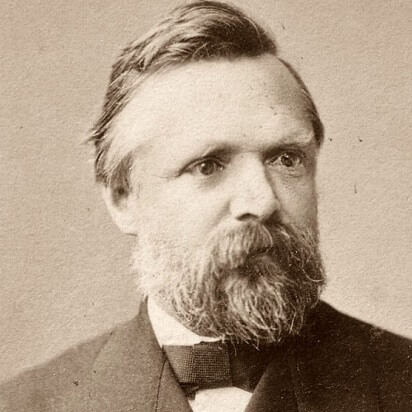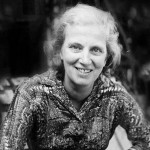![]()
Carl von Voit was a prominent German physiologist of the 19th century who helped place metabolism on a quantitative footing when he was able to achieve precise nitrogen balance experiments, first in dogs and then in humans.
Voit demonstrated that the nitrogen excreted in feces and urine was a measure of protein metabolism. (Nitrogen is a characteristic element of amino acids which make up proteins.) While others before him could not balance the output of nitrogen with the input from food, Voit with painstaking attention to details was able with his mentor Bischoff to accomplish this early in his career.
Voit later showed that physical exertion does not increase the metabolism of protein, contrary to the prevailing belief of the time that the energy for musular work was supplied by the oxidation of muscle tissue.
With Pettenkofer, Voit constructed the first human calorimeter, a chamber where metabolism under different conditions could be measured.
Voit was professor of physiology at the University of Munich for most of the second half of the 19th century. There he trained generations of scientists in his lab (including the American Wilbur O. Atwater, the “father of American nutrition science”). He also co-founded the influential Zeitschrift fur Biologie (Journal of Biology).
References:



